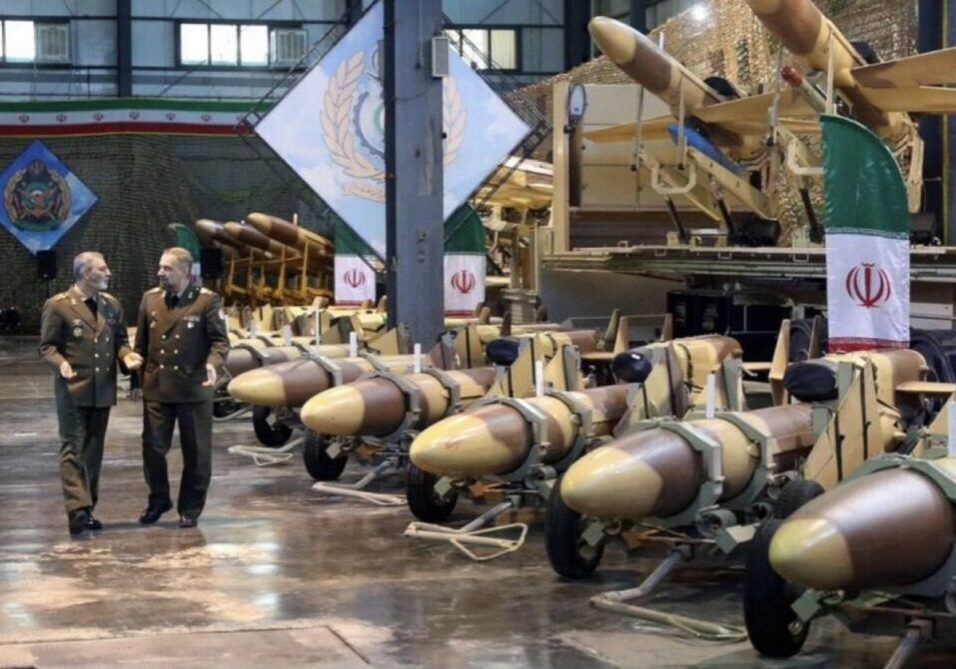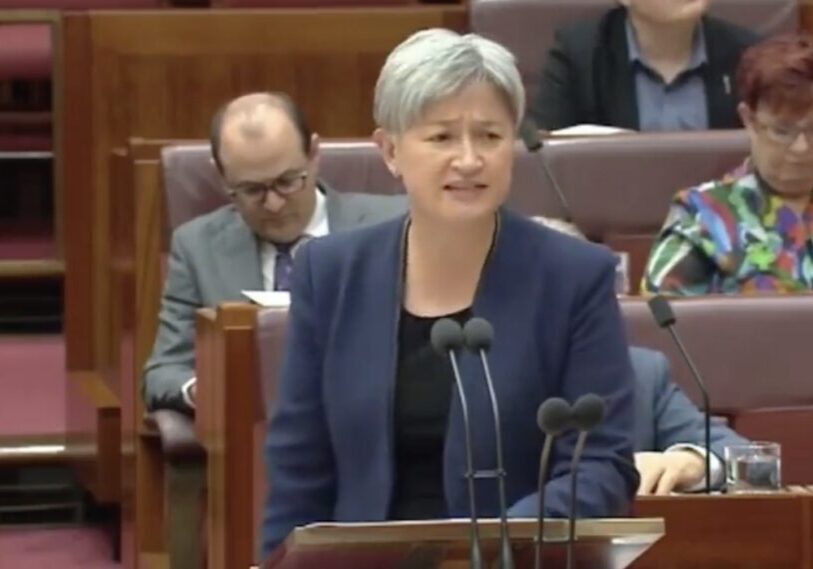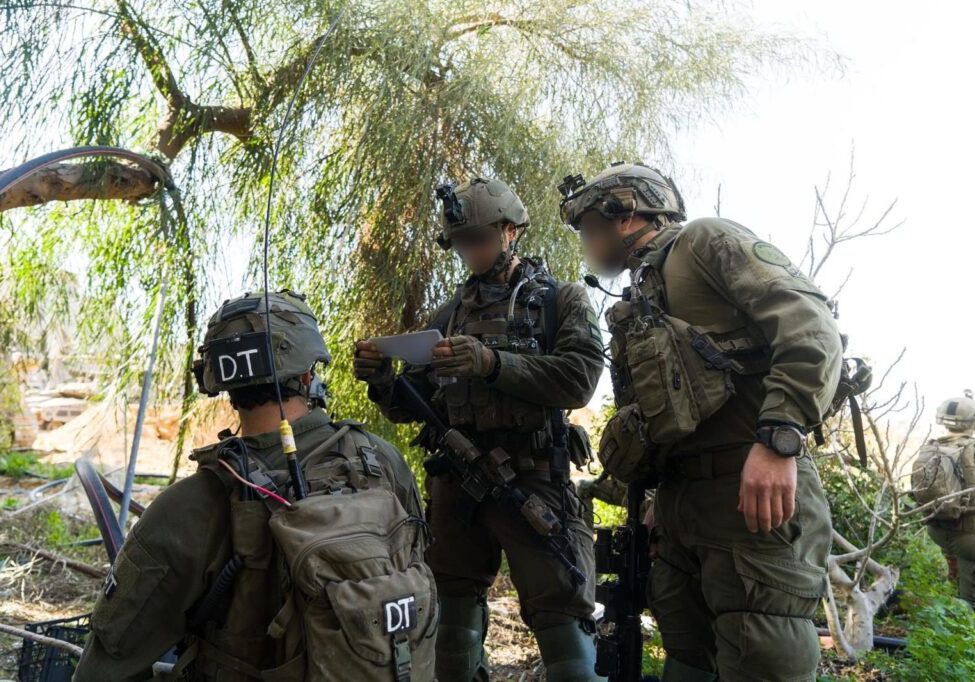Australia/Israel Review
Race for the White House
Jun 24, 2008 | Adam Frey
Adam Frey
On June 3, 2008, exactly six months after the first votes were cast in Iowa and nearly a year after campaigning actually began, the longest US primary season in recent memory finally came to an end. Barring an unlikely convention fight, US Senator Barack Obama has secured the Democratic Party’s nomination and will face presumptive Republican nominee Senator John McCain in the general election on November 4. (Neither will officially be their party’s nominee until the party conventions, in August and September, respectively.)
Previously, AIR (Nov. 2007) previewed the positions of seven major primary candidates on key Middle East issues. Now that the field has settled, and following development of the candidates’ positions on Middle East policy, this article takes a closer and renewed look at the two presidential nominees’ views and positions on the US-Israel alliance, the peace process, Iran and Iraq – some of which have emerged as significant points of contention between the two campaigns.
US-Israel relations
Senator Obama has described Israel as “the most important [US] ally” in the Middle East and said that the alliance is based on shared values and national interests. He has also said that “the idea of a secure Jewish state” is “fundamentally just” and “necessary” and that his and the US commitment to Israel’s security is “non-negotiable”. On the occasion of Israel’s 60th anniversary, Obama released a statement saying:
While threats to [Israel’s] existence have endured, Israelis have built their nation into a strong, vibrant democracy with a prosperous economy, a rich cultural life, and a deep friendship with the United States that benefits both our peoples in so many ways… As the Jewish State continues to grow and prosper, the United States will always stand with Israel to ensure it can defend itself against terrorism and violence, from as close as Gaza and as far as Teheran.
Senator McCain too is an ardent supporter of Israel and the US-Israel alliance, a bond he has described as forged by “the love of liberty and the pursuit of justice” as well as “by shared ideals and by shared adversity.” In a recent speech to the American Israel Public Affairs Committee (AIPAC) annual conference, McCain concluded his remarks: “We [the US and Israel] are the most natural of allies. And, like Israel itself, that alliance is forever.”
Senator McCain has also praised Israel as “the great democracy of the Middle East” and marvelled at the fact that “Zionism has been in the middle of wars and great trials and it has held fast to the ideals of democracy and social justice and human rights.”
Both senators have also pledged to help Israel maintain its qualitative military advantage in the region.
Israeli-Palestinian peace process
Senator Obama supports Israel’s and the Palestinians’ efforts to negotiate a two-state resolution to the conflict and believes such a peace is central to Israel’s security. Obama believes that resolving the conflict is in the US national interest as well, arguing that the failure to resolve the conflict “provides an excuse for anti-American militant jihadists to engage in inexcusable actions.”
At the same time, Senator Obama has said that he won’t always agree with all of Israel’s actions and that part of his role “in being a friend to Israel is… to hold up a mirror and tell the truth”. One such example is Israeli settlement policy, which Obama has referred to as “not helpful” at this point.
Senator McCain also supports a two-state resolution between Israel and the Palestinians and believes that it is “vital” to resolve the conflict. However, McCain is more apt to blame the lack of progress toward a solution on Palestinian violence against Israeli citizens. While supporting Palestinian Authority President Mahmoud Abbas, McCain has said that “a peace process that places faith in terrorists can never end in peace.” He also has declined to criticise Israeli settlement policy. Finally, McCain disputes the impact of the conflict as a source of Islamic extremism, believing that the US would still face that “enormous threat” even after the conflict is resolved.
Another issue on which Obama and McCain agree is on the need to isolate Hamas unless and until it agrees to abide by the requirements set out by the Quartet: renounce violence, recognise Israel’s right to exist, and agree to abide by agreements signed by the Palestinian Authority. In this position the two candidates also agree with the approach of the Israeli government, the Bush Administration, and the rest of the Quartet – the EU, UN and Russia.
Iran
Both McCain and Obama view Iran as a significant threat to the US and Israel in the region. Both also emphasise the importance of preventing Iran from developing nuclear weapons and neither has taken the military option “off the table”. That said, the two candidates differ on how the US and the international community should accomplish this goal, which has led to each heavily criticising the other for his policies and approach.
Speaking at a debate between Democratic candidates last year, Obama famously said that, if elected, he would meet with the leader of Iran (as well as other countries) “without preconditions” within the first year of his administration. He subsequently reiterated this position and used it to distinguish himself from his Democratic rivals, touting on his website, “Obama is the only major candidate who supports tough, direct presidential diplomacy with Iran without preconditions.”
Perhaps in response to some criticism, more recently Obama has, in the words of one analyst, “calibrated” this position. He now says that he is willing to meet with “the appropriate” Iranian leaders – not necessarily President Mahmoud Ahmadinejad – and that any meeting would be preceded by lower-level “preparations” and only if it would advance US interests.
The thrust of his position has remained the same, however: the United States should not be afraid of negotiating with its enemies and the best way to prevent Iran from obtaining nuclear weapons at this point is through “tough and principled diplomacy” employing a “carrot and stick” approach.
Obama would offer Iran economic and political inducements to halt its pursuit of nuclear weapons and stop supporting terrorist groups like Hamas and Hezbollah and Shi’ite extremists in Iraq while threatening increased economic sanctions and political isolation if it continues these policies. In the Senate, Obama introduced legislation calling for divestment from companies doing business with Iran. He voted against a bill to designate the Iranian Revolutionary Guard Corps (IRGC) a terrorist organisation, arguing that the legislation could provide the Bush Administration a pretext to use military force against Iran; but he now says that label was rightly applied.
McCain has called Obama’s willingness to meet with Ahmadinejad “naïve” and “reckless”. Although McCain does not completely rule out negotiating with Iran and supports lower-level talks such as those that occurred between the US ambassador in Baghdad and his Iranian counterpart, he believes a presidential-level dialogue is inappropriate until the differences between the parties have largely been worked out. The key issues in this case are Iran’s pursuit of nuclear weapons, training and arming of Iraqi extremist groups that have killed US soldiers, support for Hamas and Hezbollah; and threats to “wipe Israel off the map”. As it stands today, McCain voices scepticism about what a presidential sit-down with Ahmadinejad could accomplish, arguing it would only provide him legitimacy and undermine Iranian reformers.
McCain also has argued that the carrot and stick approach favoured by Obama has been tried before, first by the Clinton Administration and more recently by the so-called EU 3, with US support – all to no avail.
McCain has said he wants to strengthen the international sanctions against the Iranian regime, and that the US should lead an effort to impose multilateral sanctions outside of the UN framework if the Security Council is too paralysed to act. McCain also supports a worldwide divestment campaign and voted for the legislation designating the IRGC a terrorist organisation. McCain also favours imposing financial sanctions on Iran’s Central Bank, which is involved in financial transactions that aid the IRGC in its subversive and violent conduct.
Iraq
The two candidates’ views on the war in Iraq are even more divergent. Senator McCain supported the war from the outset, although he was also a significant critic of the Bush Administration’s early handling of the war. He believes that the war is a critical battle in the war on terror and that a premature withdrawal would have catastrophic consequences.
McCain was also one of the earliest and strongest proponents of the “surge” strategy that was implemented beginning in January 2007. He argues that the surge strategy has largely succeeded, pointing to such signs of success as the lowest level of attacks on Iraqi civilians and US forces in years (a 70% drop since 2006), the performance of Iraqi security forces in taking control of Basra and Sadr City from Shi’ite militias, and the Iraqi parliament’s passing several pieces of legislation considered reconciliation benchmarks. McCain supports continuing a US troop presence in Iraq to help create a stable and democratic country with a security force that can protect itself.
On the other hand, Senator Obama opposed the Iraq war from the very beginning, announcing his opposition in a 2002 speech when he was still an Illinois state senator. Obama further argues that the war in Iraq has actually harmed US (and Israeli) security by taking attention away from the war in Afghanistan, strengthening Iran, and stoking extremism in the region.
Obama also opposed the surge strategy when it was first announced. Although he acknowledges the surge has reduced violence, he argues that Iraq’s political leaders have not used that opportunity to make progress toward the necessary reconciliation.
Obama has pledged to begin a “phased withdrawal” of US troops as soon as he takes office. His plan would have all combat troops out of Iraq within 16 months, although Obama would leave some troops in Iraq to protect the US Embassy and diplomats. He would also keep troops either in Iraq or nearby to target al-Qaeda. At the same time, Obama would lead a regional diplomatic effort with all of Iraq’s neighbours to secure the country.
US Jewish Community
The US Jewish community traditionally leans heavily Democratic and, given the bipartisan support for Israel, that issue is unlikely to be determinative for many US Jews. Nevertheless, Obama is perceived to have a “Jewish problem”, resulting primarily from prior statements perceived as too pro-Palestinian and past association with Palestinian activists such as Rashid Kalidi, anti-Israel bias attributed to some of his current and former advisers, and antisemitic statements by his former pastor. Less substantively, rumours that Obama is or was a Muslim have been widely denounced and repudiated by Jewish community leaders.
Obama has worked hard throughout the campaign to address Jewish concerns and establish his pro-Israel bona fides. According to a close follower of the politics of the US Jewish community, he has done well enough that he will almost certainly continue the long-standing tradition of the Democratic nominee winning the support of the majority of Jewish voters.
At the same time, Senator McCain has a long history of supporting Israel in the Senate, and his strong friendship with Senator Joe Lieberman – who has endorsed him despite being a (nominal) Democrat – may help as well. According to recent polling, McCain is poised to do better among Jewish voters than any Republican candidate since Ronald Reagan. There are reports that some Jewish backers who had been raising money for Hillary Clinton have now shifted their support to McCain, rather than Obama, indicating a degree of hesitation about him in at least parts of the American Jewish electorate.
Jews represent less than 3% of the American electorate, but, in America’s non-compulsory voting system, have a higher participation rate than most American groups. Moreover, some Jewish voter concentrations may have the potential to help sway key swing states, particularly Florida and Pennsylvania.






